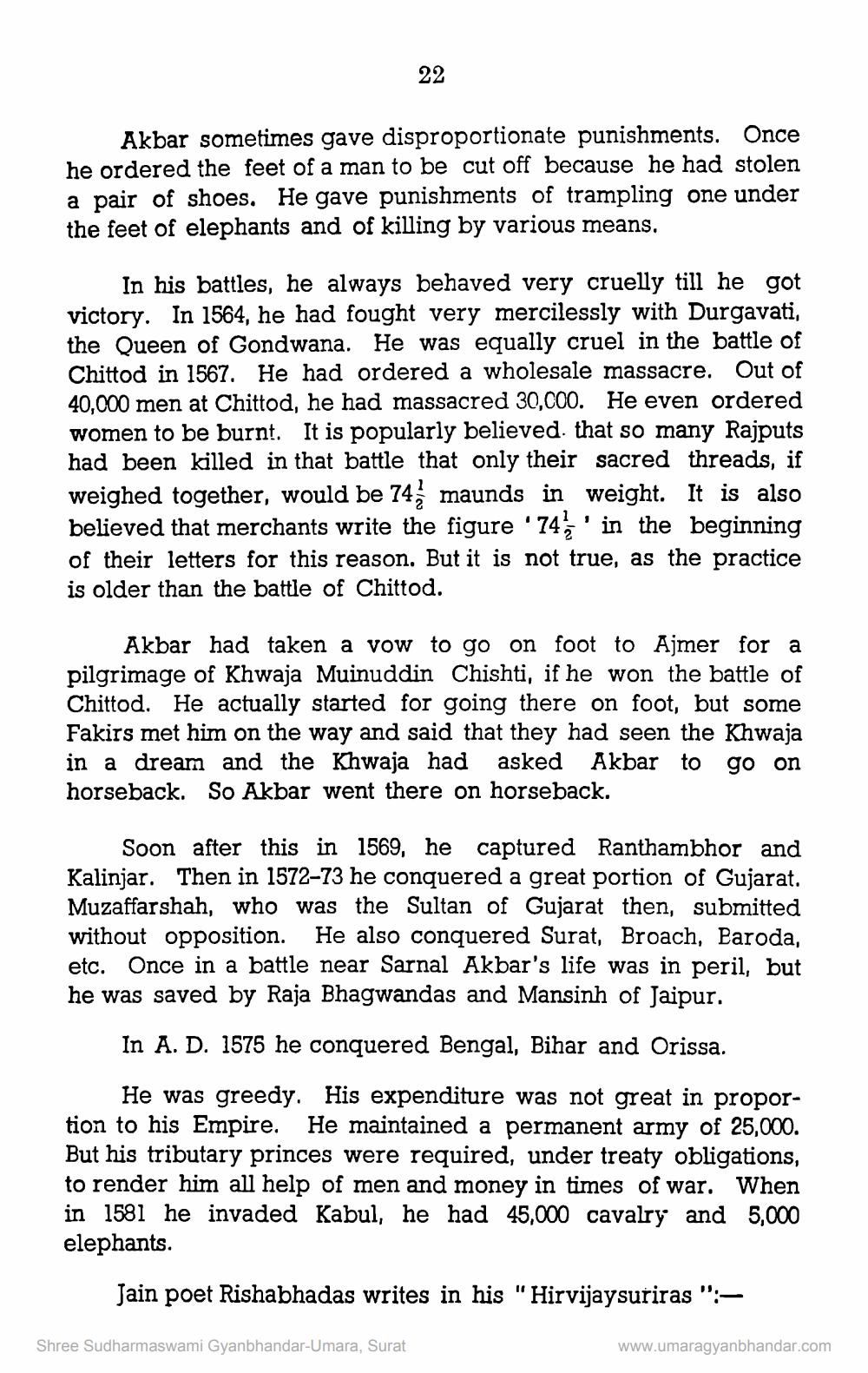________________
22
Akbar sometimes gave disproportionate punishments. Once he ordered the feet of a man to be cut off because he had stolen a pair of shoes. He gave punishments of trampling one under the feet of elephants and of killing by various means.
In his battles, he always behaved very cruelly till he got victory. In 1564, he had fought very mercilessly with Durgavati, the Queen of Gondwana. He was equally cruel in the battle of Chittod in 1567. He had ordered a wholesale massacre. Out of 40,000 men at Chittod, he had massacred 30,000. He even ordered women to be burnt. It is popularly believed that so many Rajputs had been killed in that battle that only their sacred threads, if weighed together, would be 74 maunds in weight. It is also believed that merchants write the figure '74' in the beginning of their letters for this reason. But it is not true, as the practice is older than the battle of Chittod.
Akbar had taken a vow to go on foot to Ajmer for a pilgrimage of Khwaja Muinuddin Chishti, if he won the battle of Chittod. He actually started for going there on foot, but some Fakirs met him on the way and said that they had seen the Khwaja in a dream and the Khwaja had asked Akbar to go on horseback. So Akbar went there on horseback.
Soon after this in 1569, he captured Ranthambhor and Kalinjar. Then in 1572-73 he conquered a great portion of Gujarat. Muzaffarshah, who was the Sultan of Gujarat then, submitted without opposition. He also conquered Surat, Broach, Baroda, etc. Once in a battle near Sarnal Akbar's life was in peril, but he was saved by Raja Bhagwandas and Mansinh of Jaipur.
In A. D. 1575 he conquered Bengal, Bihar and Orissa.
He was greedy. His expenditure was not great in proportion to his Empire. He maintained a permanent army of 25,000. But his tributary princes were required, under treaty obligations, to render him all help of men and money in times of war. When in 1581 he invaded Kabul, he had 45,000 cavalry and 5,000 elephants.
Jain poet Rishabhadas writes in his "Hirvijaysuriras ":
Shree Sudharmaswami Gyanbhandar-Umara, Surat
www.umaragyanbhandar.com




